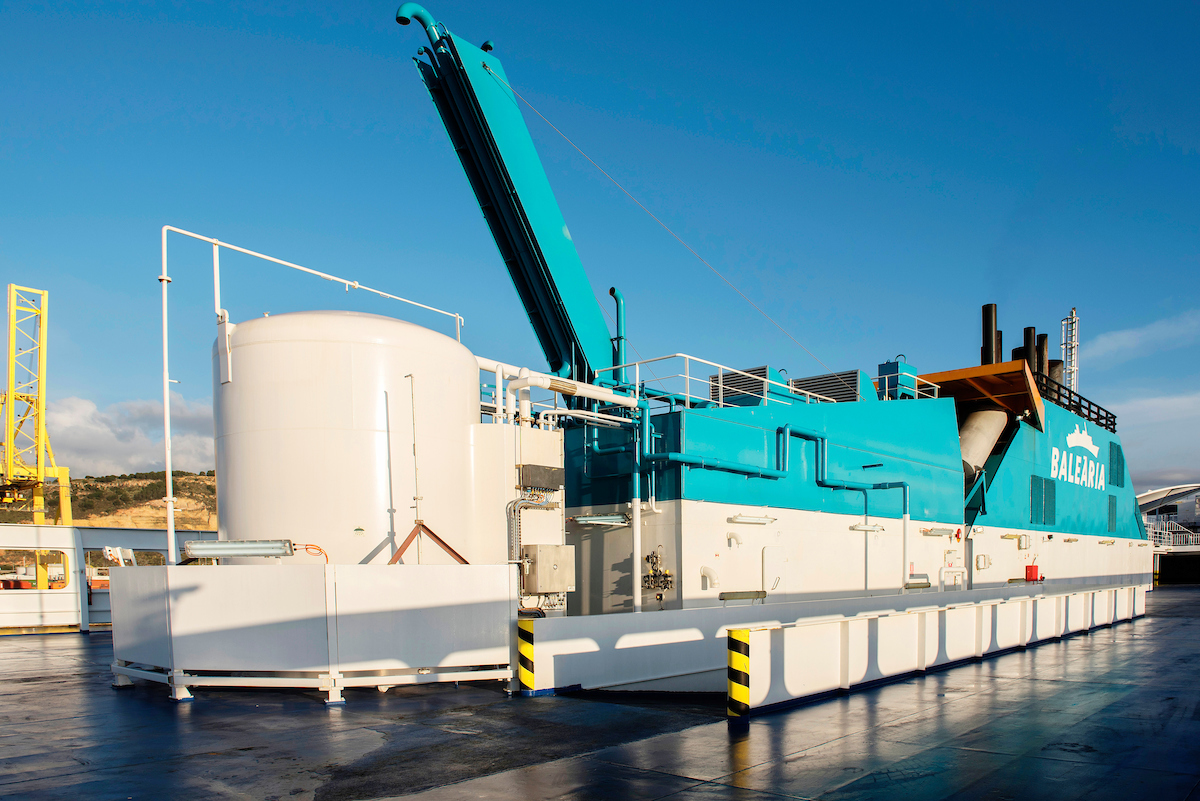
Baleària and Gas Natural Fenosa bring the first natural gas engine in Spain on a passenger vessel to Majorca
Palma
02/03/2017
- The ‘Abel Matutes ferry’, which crosses to Barcelona daily, has capacity for 900 passengers and more than 2,200 linear metres of cargo
- This project, which is ground-breaking in Spain, is aimed at reducing emissions and enhancing the quality of the air in both urban settings and in ports such as those of Palma and Barcelona
Baleària's Abel Matutes ferry, which runs daily between Palma and Barcelona, operates with the first natural gas engine in Spain on a passenger vessel. In conjunction with Gas Natural Fenosa, the company has sponsored the development and installation of this auxiliary engine, as well as a 30 m3 liquefied natural gas (LNG) tank (with a range of one week). The ferry transformation project took place without interfering in the vessel's operations and routes.
The new natural gas engine is integrated in the vessel's electrical deck, allowing it to operate with any auxiliary system and with no visual impact. The vessel uses natural gas during arrival and departure manoeuvres at the ports of Palma and Barcelona, and also for electricity generation while it remains docked, instead of the usual fuel.
By applying this system, carbon dioxide (CO2) emissions are reduced by 40% and nitrogen oxide (NOx) is reduced by 80%, which means annual savings of nearly 4,000 tonnes of carbon dioxide (CO2), more than 60 tonnes of nitrogen oxide (NOx) and 6 tonnes of sulphur oxide (SOx). The ferry has a length of 190 metres, capacity for 900 passengers and 2,235 linear metres of ro-ro cargo.
The Chairman of Baleària, Adolfo Utor, highlights that this project "represents the first determined step in Baleària's commitment to natural gas". The shipping line has become one of the global pioneers in the use of this product with the construction of three smartships propelled by LNG and an investment of more than 320 million euros. Utor also remarked that the commitment to the environment and the use of non-contaminating energy “is one of the company's strategic decisions”.
Joan Gual de Torrella, President of the Port Authority of the Balearic Islands, felt the initiative was highly positive and hoped ‘that it will open up a new horizon toward more sustainable and efficient sea transport of passengers and freight’.
In turn, Daniel López Jordà, Managing Director of Retail Business at Gas Natural Fenosa, stated that the project “is an important commitment to innovation, with the aim of improving the quality of the air in both the city and within the port area. Natural gas will be a key player in upcoming years in the transport sector due to its clear contribution in reducing emissions and particulate matter”.
This project is part of the CLEANPORT initiative and is co-funded by the European Union through the CEF-Transport programme. The ports of Palma (Majorca) and Barcelona, as well as the Directorate General of the Merchant Marine, have also participated in the project.






